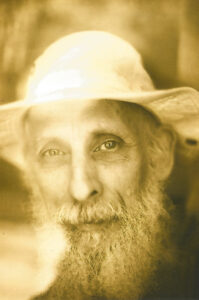I do not understand my own actions. For I do not do what I want, but I do the very thing I hate… I can will what is right, but I cannot do it. – Romans 7:15-18 NRSV
… her sins, which were many, have been forgiven; hence she has shown great love. But the one to whom little is forgiven loves little. – Luke 7:47 NRSV
Today I want to talk about the ugliest, scariest words in the entire vocabulary of religion: sin, and hell, and damnation. And I want to lead you through them to a place if you’ll let me, where no ugliness, ill-will, or fear can mar your hope and delight in the kingdom of God. Paul tells us that that kingdom is “righteousness and peace and joy in the Holy Spirit” (Rom 14:17). There our joy will be full because God intends a reconciliation of all things, a salvation of all, and the ending of all suffering. Suffering ends as the will to do evil, and with it hell, exhausts itself. I can cite Scripture for that, but would rather refer you to your own faith. Your faith is the inborn knowledge of God in your own heart. This knowledge is overlaid with ignorance, but forgiveness helps dissolve that ignorance.
“Don’t lie to me,” you may say. “How would you banish fear? We’re mortal creatures, hard-wired to respond with fear to any threat to our mortal bodies.” Well, yes, we are embodied in bodies that die, and so we’re subject to anxieties, as all prey animals are; but we have a Savior who’ll give us courage for the asking. I’ve experienced this gift of courage. But more than that, This Savior gives us the perfect love that casts out fear (1 Jn 4:18). This grows in us, along with our readiness to forgive all offenses against us, as we grow ever more awake to our eternal life in the all-inclusive Being whom I know as Christ. Ask for this gift of perfect love. It will cost you only your obedience. – Obedience? Yes, a determination to follow what you discern to be the will of God, and not self-will, whenever you sense that the two are in conflict. Your conscience will guide you. Not sure? Pray for clarity.
If you’re balking at my Christian language, please relax. I don’t believe that your salvation depends on your having the correct notional belief about Jesus Christ, any more than I believe that innocent babes, who have no language yet to form notions or theologies with, could be damned for not endorsing the “right” one. The apostle James laughs at correct notional beliefs: “Even the demons believe – and shudder” (James 2:19).
Salvation depends, first, on there being a Savior with a willingness to save and heal you. It depends, second, on your willingness to recognize that you’re not OK as you are, because you’ve been acting like a chronic mistake-maker, and you feel chronically unhappy, and you don’t know how to correct your own condition. That’s what’s called being a sinner. We sinners commonly don’t like the label “sinner,” and think it’s better applied to others who are worse than we are and do worse than we’ve done – the people we want to “other.” But the fact is that we’ve said and done things we’re now ashamed of, and we can’t undo them. Our shame may be deep enough to generate self-loathing, which we flee from by repressing it and living in denial of it. But something in us knows that if we ever have to look back over the life we’ve lived, and experience the suffering that we’ve caused others by the choices we’ve made, we’ll hate that experience.
It happens that we do get that hated experience. After the death of our body, we face something that many religions call “the Judgment.” Our consciousness, our soul, witnesses a replay of our words and deeds from our life on earth, accompanied by an experience of the feelings these caused in the others affected by them. Some survivors of near-death experiences have returned to the body after experiencing the Judgment. Reading or hearing their accounts of it can make us understand why prophets and preachers of all faiths warn of “dying in one’s sins” as such a terrible thing to risk, and call sinners to repentance with such passion.
Now Jesus was one of those great warners, and He describes the fate of those who die in their sins in various images: “The outer darkness, where there will be weeping and gnashing of teeth” (Matt 8:12, 22:13, and 25:30); “Hades, where the rich man was tormented” (Luke 16:19-31); “the eternal fire” (Matt 18:8, 25:41). But the really telling statement attributed to Jesus is that insofar as there is any damnation, it is self-damnation: “And this is the judgment, that the light has come into the world, and people loved darkness rather than light because their deeds were evil. For all who do evil hate the light and do not come to the light, so that their deeds may not be exposed” (John 3:19-20). Enough light shines for every moral agent to know whether a deed of theirs is evil (John 1:9, Eph 5:11-14). Many moral agents, including all corporations that make a virtue of corporate selfishness, and all governments that use lethal force to maintain their power, reason “Let us do evil, that good may come” (Rom 3:8), but the conscience knows that good ends can never justify evil means, and there is no escaping accountability, as any war veteran suffering from a moral injury can tell you.
So, at the Judgment, many souls flee from the light and fling themselves into hell, or, as the mystic Swedenborg described it, find a dark hole and slink into it. The mystic Boehme, on the other hand, said that there was no need for the soul to go anywhere after death, because just as Jesus said “The kingdom of God is within you” (Luke 17:21), so is the kingdom of hell within every sinner. If not for the great mercy of God, whose will is to save everyone (1 Tim 2:4; Ezek 33:11), the self-damned might stew in their timeless self-made hell forever; but somehow God lets the self-torment of the evil will self-destruct, with no more consciousness, human, angelic or divine, able to behold it. In the heart of God, in whom there is no darkness at all (1 Jn 1:5), sin and evil vanish; so also in God’s creation, from no part of which God has ever been absent: and so God will wipe away every tear from our eyes (Rev 21:4).
This is why God, the Only Good (Mark 10:18), the Only Wise (1 Tim 1:17), who is Love Itself (1 Jn 4:8, 4:16), cannot fairly be found fault with for allowing evil into the world. God created humans in God’s own likeness, namely, moral agents with free choice, not “good” automatons who automatically do the right thing, and almost all of us have misused that freedom by making wrong choices. As we sow, so we reap (Gal 6:7). But many of us have repented our wrong choices, found our sins forgiven, and been granted the power to live henceforth without sin (Rom 6:6).
Now a terrible doctrine has been infecting the Christian faith for centuries, which is that humans while living in mortal flesh, are incapable of living without sinning. But to their credit, the Quakers have been insisting for centuries that Christ has made a sinless life possible not only for spiritual superheroes but for quite ordinary men, women, and children. He indwells us all (John 1:4, 17:11; 2 Cor 13:5); so why not let Him rule us? I’d love to add my own testimony of liberation from sin to those of the Apostles and the Early Friends, but Jesus has made this unnecessary. Wherever the Bible is read, people may hear of the woman whose sins had been many, but “who loved much” (Luke 7:47 KJV). She broke all social conventions in showing her love for Jesus: wildly, extravagantly, washing His feet with her tears.
This, Jesus said, is the kind of love shown by people who know that an impossibly huge burden of sin has been lifted off them. Love like a waterfall! Love like blazing sunlight! Love like the blossoming of spring! Brothers and sisters, have you vowed obedience to God’s will yet, and felt your old sins washed away when God accepted your offering? Then open your hearts, forgive everyone as you’ve been forgiven, and let love shine forth and help rescue this suffering world from its long winter of sin and despair!

John Jeremiah Edminster (M. Div., Earlham School of Religion, 2019) worships regularly with Conservative Friends and hosts the Tuesday evening House of Light Friends’ Worship Group in his home in Richmond, Indiana. He carries a concern to promote surrender of self to Christ.

What does it mean to be a gathering space for thoughtful and creative reflections on the history, theology, and modern practices of the Church of the Brethren and related movements? Brethren Life & Thought has a long history of working to be such a space. We’re excited to bring our content online through DEVOTION: A Blog by Brethren Life & Thought. Here, you’ll find sermons and other writings from Brethren, Mennonite, and Quaker writers from a variety of theological and social contexts. Some weeks, you might read a piece that resonates with you. Some weeks, you might read a piece that challenges you. Some weeks, you might read a piece you think is heretical. For good or for ill, the Anabaptist and Peace Church movements are remarkably diverse in faith and practice. This blog attempts to expose our readers to the vastness of that diversity – even when it makes us uncomfortable. As you comment, which we highly encourage you to do back on our Facebook page, please remember to do so in light of our membership in the Body of Christ. Let us be different than the world for Jesus truly does invite us to another way of living.

